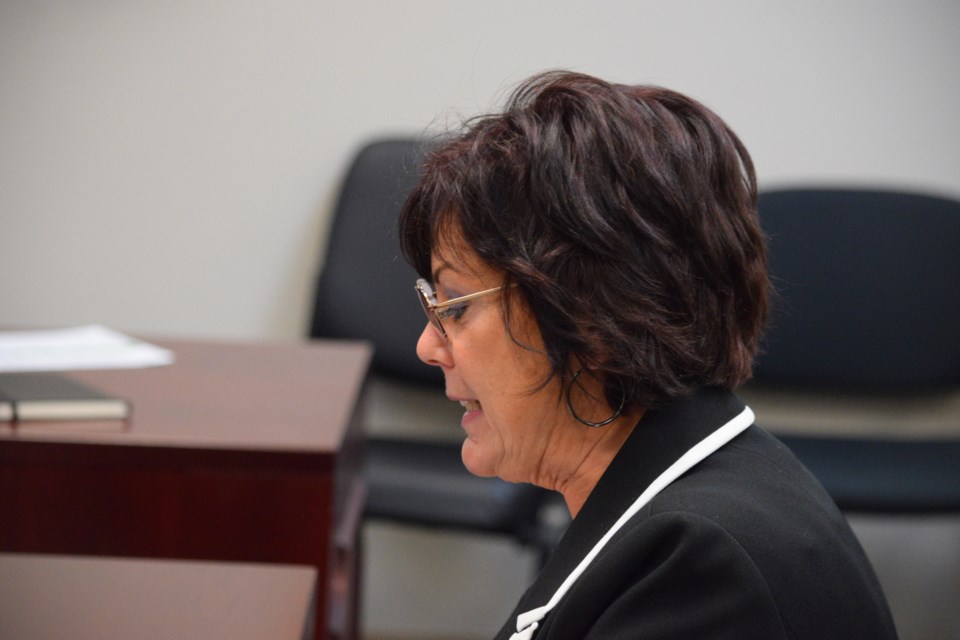BARRHEAD - Barring a last-minute miracle, Barrhead and District Family Community Services' (FCSS) Thrive program will soon be no more.
FCSS executive director Karen Gariepy gave Town of Barrhead councillors the bad news during their Nov. 22 meeting as she presented the organization's 2022 budget, asking councillors to consider increasing their annual contribution by $7,500 making to $68,500.
Later in the meeting, councillors accepted Gariepy's presentation as information. The final decision to approve the FCSS budget will be part of the municipality's overall budget deliberation process.
Although FCSS is a stand-alone, non-profit organization, they receive their funding through provincial and municipal government grants in an 80-20 per cent split, with the province being responsible for the larger portion. The rest of its funding for programming that falls outside the province's mandate for FCSS comes from the community. Community funding helps operate programs such as the Food Bank, Coats for Kids, and its Christmas programs.
Thrive is FCSS's family violence and relationship abuse prevention initiative. It gets its name because that is what they hope clients will do after accessing its services.
Traditionally, the Barrhead municipalities have contributed equal amounts. For the three years, depending on their circumstances, FCSS asked for the municipalities for an amount between $50,000 and $70,000 each. Last year, the town and county contributed $61,000 to FCSS coffers.
"In my proposal to you, Thrive will not continue, which will be a huge loss to the community," Gariepy said.
Currently, Thrive is serving 25 clients who are the victims of domestic, or family violence, and 24 outreach clients or people whose family or friends are experiencing domestic or family violence.
Initial dollars came in the form of provincial funding by way of a Safe Communities Innovation Fund (SCIF) grant in 2011 and that rolled over into the Family Communities Safe Grant program.
This revenue stream dried up in March 2018. Since then, the program has operated through community funds, including a $30,000 donation from the town spread over two years as part of a Rotary Club proposal that would have seen them join with the service club and the county to provide $45,000 annually. The county decided not to opt-in.
Gariepy said they have applied for a provincial grant, and if they receive it, Thrive will be able to continue into the new year. She estimated the cost to be about $35,000-$40,000 annually, saying if not successful, they will try to help Thrive's current clients with the remaining staff.
"Will we be able to service our clients the way they are now? Probably not. Am I going to have to take a client load myself? Probably. Is that my role as executive director? Absolutely not, but we can't let them slip through the cracks."
Gariepy is FCSS’ only full-time employee. The rest are part-time, with most working between two and four days a week.
But she admits that might be difficult, as Gariepy characterized she has already "cut to the bare bone", which means, among other things, limiting staff hours and a reduction of her training budget.
Despite the reduction in the training budget, she is looking into cross-training staff because currently, their "areas of expertise are very specific."
"When a client walks through that door, despite who is working, we want to be able to deal with their concerns right away, not ask them to come back another day," she said.
However, Gariepy admits, that is more of a long-term goal.
In addition to the contributions from the municipalities, the projected 2022 FCSS budget includes $393,898.50 from the province as well as a projected $80,475.50 from its 80/20 programs, such as senior support for a total of $532,898.50.
Expenses are projected to meet income for a balanced budget.
A large part of why Gariepy is asking the municipalities to contribute more, she said, is because of significant increases in uncontrollable costs such as insurance, WCB coverage and the annual audit.
"For years, we were very fortunate that our auditor offered their services at a relatively low rate. This year it jumped to $7,500 and next year to $10,000," she said. "That has hit us hard."
Gariepy said planning anything beyond next year is difficult, as the province will be changing FCSSes funding framework and reporting system. The changes are expected to be announced sometime next year.
"What it will look like and what it will mean for municipalities, no one is sure," she said.
Barry Kerton, TownandCountryToday.com



